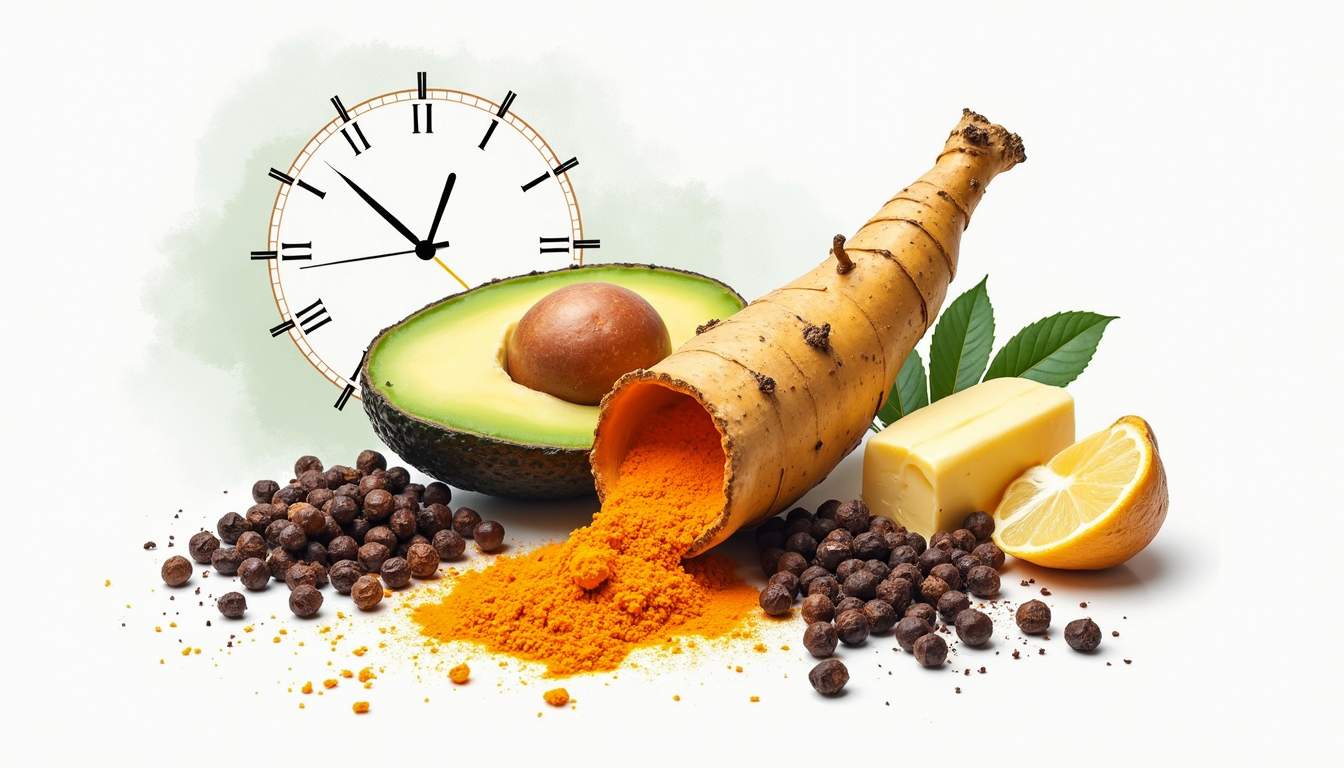The best time to take turmeric depends on your health goals. Morning intake may support energy, focus, and digestion, while evening consumption can aid relaxation, reduce inflammation, and improve sleep quality. For best results, take turmeric with black pepper and healthy fats to boost absorption.
Understanding Turmeric and Its Benefits
Turmeric is more than just a culinary ingredient; it is a potent source of antioxidants and anti-inflammatory compounds. The primary active compound, curcumin, is responsible for many of its health benefits. It has been extensively studied for its potential to combat inflammation, support joint health, and even improve cognitive function. As research continues to unveil its myriad benefits, understanding how and when to take turmeric can enhance its effectiveness. Beyond its medicinal properties, turmeric has a rich history in traditional medicine, particularly in Ayurvedic practices, where it has been used for thousands of years to treat various ailments and promote overall wellness.

The Active Compounds in Turmeric
Curcumin, the most studied active ingredient in turmeric, is known for its yellow pigment and remarkable health-promoting properties. However, curcumin is not easily absorbed by the body. This is where the concept of timing and method of consumption becomes crucial. Other compounds in turmeric, such as turmerone and ar-turmerone, also contribute to its health benefits, but curcumin remains the star of the show. To enhance curcumin absorption, it is often recommended to consume turmeric with black pepper, which contains piperine, a natural substance that can increase curcumin's bioavailability by up to 2000%. This synergy not only maximizes the health benefits but also highlights the importance of combining certain foods for optimal nutrition.
Health Benefits of Regular Turmeric Consumption
Regular consumption of turmeric may offer a wide range of health benefits. Studies suggest that it can help reduce symptoms of arthritis, improve heart health, and even lower the risk of chronic diseases. Additionally, turmeric has been linked to improved mood and cognitive function, making it a valuable addition to anyone's diet. However, to reap these benefits, it is essential to consider not only how much turmeric to consume but also when to take it. Incorporating turmeric into daily meals, such as soups, smoothies, or golden milk, can be an enjoyable way to enhance your diet. Furthermore, the anti-inflammatory properties of turmeric may also play a role in skin health, potentially aiding in the treatment of conditions like acne and eczema, thus making it a versatile ingredient both in the kitchen and in skincare routines.
Optimal Times to Take Turmeric
Determining the best time to take turmeric can depend on individual health goals and lifestyle. Some people may find that taking turmeric in the morning helps kickstart their day, while others may prefer it in the evening for its calming effects. Understanding the benefits of each timing can help individuals make informed decisions.
Morning Consumption: Benefits and Considerations
Taking turmeric in the morning can provide a natural energy boost and enhance focus throughout the day. When consumed with breakfast, turmeric can help set a positive tone for the day. Additionally, morning consumption may support digestive health, especially when paired with other gut-friendly foods.
However, it is essential to consider how turmeric is consumed in the morning. Combining it with black pepper can significantly enhance curcumin's absorption, making it more effective. A simple turmeric latte or smoothie can be an excellent way to incorporate this spice into a morning routine. Adding ingredients like coconut milk or almond milk not only complements the flavor but also provides healthy fats that aid in the absorption of curcumin. Furthermore, including a banana or spinach in your smoothie can boost the nutrient profile, making your morning drink both delicious and nutritious.
Evening Consumption: Effects on Sleep and Digestion
For those who struggle with sleep or digestive issues, taking turmeric in the evening may be beneficial. Turmeric's anti-inflammatory properties can aid digestion, making it a great addition to dinner. Moreover, its calming effects can help relax the mind and body, promoting better sleep quality.
Incorporating turmeric into an evening routine can be as simple as adding it to a warm cup of herbal tea or incorporating it into a savory dish. This timing may also help reduce nighttime inflammation, allowing the body to recover more effectively during sleep. For instance, a turmeric-infused soup or stew can be a comforting way to end the day, providing warmth and nourishment. Additionally, pairing turmeric with other soothing herbs like chamomile or valerian root in a nighttime tea can enhance relaxation, making it a perfect ritual to unwind after a long day. This holistic approach not only supports physical health but also contributes to a calming bedtime routine, setting the stage for restorative sleep.
Maximizing Turmeric Absorption
To fully benefit from turmeric, it is essential to maximize its absorption in the body. Curcumin, while powerful, is not easily absorbed on its own. Therefore, understanding how to enhance its bioavailability can significantly impact its effectiveness.

Combining Turmeric with Black Pepper and Fats
One of the most effective ways to increase curcumin's absorption is by combining turmeric with black pepper. Piperine, a compound found in black pepper, can enhance curcumin's bioavailability by up to 2000%. This combination is often recommended in recipes and supplements to ensure maximum effectiveness.
Additionally, consuming turmeric with healthy fats can further improve absorption. Curcumin is fat-soluble, meaning it dissolves in fat. Incorporating turmeric into meals that contain healthy oils, such as olive oil or coconut oil, can help the body absorb more of this beneficial compound. For instance, a simple golden milk recipe that combines turmeric with coconut milk not only enhances flavor but also optimizes the health benefits, making it a delicious and nutritious beverage option.
Natural Consumption Timing
Ultimately, the best time to take turmeric may vary based on individual preferences and health goals. Some may find that morning consumption suits their lifestyle, while others may benefit from evening intake. Listening to the body and observing how it responds to turmeric at different times can help determine the optimal routine.
Incorporating turmeric into meals, smoothies, or teas throughout the day can provide flexibility in consumption. The key is to ensure that it is paired with the right ingredients to enhance absorption and effectiveness. For example, adding turmeric to a morning smoothie with spinach, banana, and a spoonful of almond butter not only boosts the nutritional profile but also creates a vibrant, energizing start to the day. Furthermore, turmeric-infused soups or stews can be a comforting way to enjoy this spice during colder months, allowing for both warmth and wellness in every bowl.
Moreover, considering the form in which turmeric is consumed can also play a role in its absorption. Fresh turmeric root, powdered turmeric, and turmeric supplements all have different levels of bioavailability. Fresh turmeric root, for instance, can offer a more potent experience due to its natural oils and moisture content, while powdered turmeric is convenient and versatile for cooking. Exploring various forms of turmeric can add variety to your diet and help you discover which method works best for you.
Support your health naturally with our premium turmeric supplement:
Shop Turmeric + Curcuma Supplement

Share:
Turmeric for Arthritis: Natural Relief for Joint Pain and Inflammation
Rhodiola and Bacopa: Natural Nootropics to Enhance Brain Function and Memory